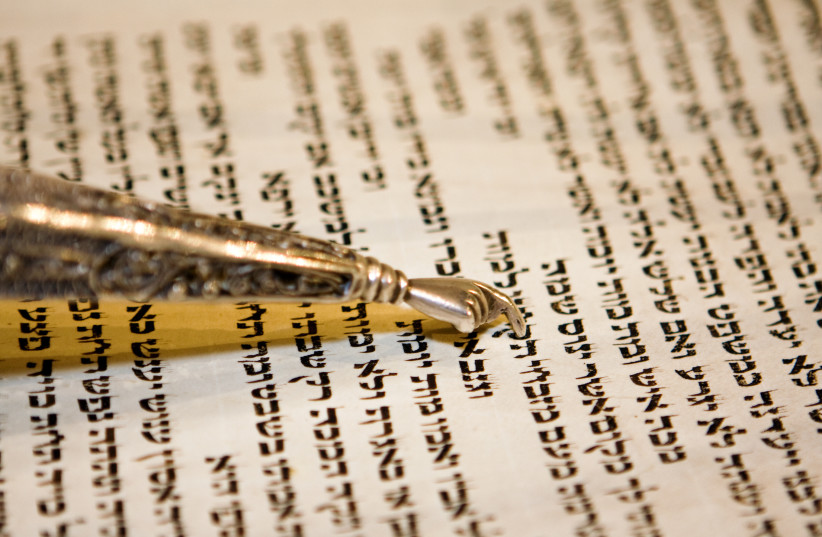This week’s Torah portion, Korah, is one of divisiveness and rebellion, couched in holy language but devoid of holy intent.
In the aftermath of the spies, the leadership of the nation has been considerably weakened. The nation has lost its destination – entry into the land – and as a result, the people have lost the focus they gained at Sinai and are mired in despondency. The moment is ripe for Korah and his company to challenge Aaron’s exclusive right to priesthood, which represents the upper echelons of spiritual – and potentially political – power.
Korah seeks to seemingly democratize the nation by decrying Moses’s elitism: “You have gone too far! For all of the community are holy, all of them and the Lord in their midst. Why then do you raise yourselves above the Lord’s congregation?” He uses the rallying cry of religious equality in order to foment discontent. On the face of it, he is fighting for a closer relationship with God than a hierarchy in society allows for.
These are intoxicating words. Korah creates divisiveness precisely by offering egalitarianism: We are all equal. We are all holy. We should all be able to make decisions for ourselves together with God! Korah, of course, has no real intention to flatten the hierarchy of leadership in order to build a kibbutz. He is making a run on the leadership for himself.
This is something that Moses understands when he gives his answer: “Is it not enough for you that the God of Israel has set you apart from the community of Israel and given you access to Him? Now that He has advanced you and all your fellow Levites with you, do you seek the priesthood too?”

Moses sees what Korach is after: unbridled power cloaked in the religious language of holiness. Korah represents self-interest, but he knows to use the language of democracy, nationalism and, most importantly, God, in order to seduce the people into listening to his rhetoric. He also injects an element of truth, which makes his bid more convincing. We are all holy, for we are all created in the image of God. But beneath the veneer of truth lies raw ambition to take control.
The coup fails spectacularly. Korah and his camp are swallowed whole into the earth. Two hundred and fifty members of the elite are consumed by holy fire, and a plague consumes 14,700 from among the people who were swept up into a fight they mistook for holy idealism.
Biblical insurrection: What did Korah take?
LOOKING MORE closely at the opening verses of the Torah portion, we read that “Korah, son of Izhar son of Kohath son of Levi,” together with a group of fellow rebels, “took (va-yikah)” and “rose up against Moses” (16:1-2). It is interesting that the text never tells us just what Korah took in launching his insurrection.
Rabbi Shai Held, in an online article on the Torah portion, notes that since “God feels the need to remind the priests that their service must be a service of giving, then perhaps what Korah took is beside the point: The Torah wants us to understand something about what Korah is – a potential leader who is, at bottom, a taker.
“Korah... thus becomes a kind of anti-leader, a model of what religious leaders must not become. Accordingly, what God goes on to tell the priests is, in essence: Do not be like Korah; do not be seduced by the trappings of religious authority; do not be ensnared by the many opportunities you will have to take. A true leader is a giver. A leader who is at bottom a taker is a fraudulent leader.”
This is reinforced by Moses’s defense of his leadership:
“Pay no regard to their offering. I have not taken the donkey of any one of them, nor have I wronged any one of them.”
Moses, and later Shmuel using similar language, will emphatically assert their integrity as leaders by rejecting claims of taking anything, even a donkey, unlawfully from the people.
Using the story of Korah, Pirkei Avot 5:17 reminds us of the delicate balance between disputes for the sake of heaven or for the sake of power:
“Every dispute that is for the sake of Heaven, will in the end endure; but one that is not for the sake of Heaven, will not endure. Which is the controversy that is for the sake of Heaven? Such was the controversy of Hillel and Shammai. And which is the controversy that is not for the sake of Heaven? Such was the controversy of Korah and all his congregation.”
Disputes and disagreement around Torah interpretation and halachic discourse can indeed be for “the sake of heaven.” In essence, they are part and parcel of the fabric of rabbinic Judaism and Jewish survival. However, as this Torah portion warns us, they can also intentionally serve to foster divisiveness and discontent, alienating people from one another and turning them against each other.
In every generation, we have an element of the Korah story. Power struggles are justified by invoking the name of God and the inability to change any aspect of Torah, particularly in discussions around complex topics that affect society. While Halacha as a system is often praised for its ingenuity in confronting the challenges of modernity, much depends on the willingness of the rabbinic authority base to implement this ingenuity.
Holy space requires structure and relies on a system of rabbinic authority and fidelity to tradition. But it is a far more fluid and flexible system than many religious leaders would have us believe. When religious posturing is used to keep people out of sacred spaces, those in power would do well to think of Korah, who instead of striving to bring greater holiness to the people, went in pursuit of power.
The writer teaches contemporary Halacha and Talmud at Matan and Pardes, along with courses on sexuality and sanctity in the Jewish tradition.
